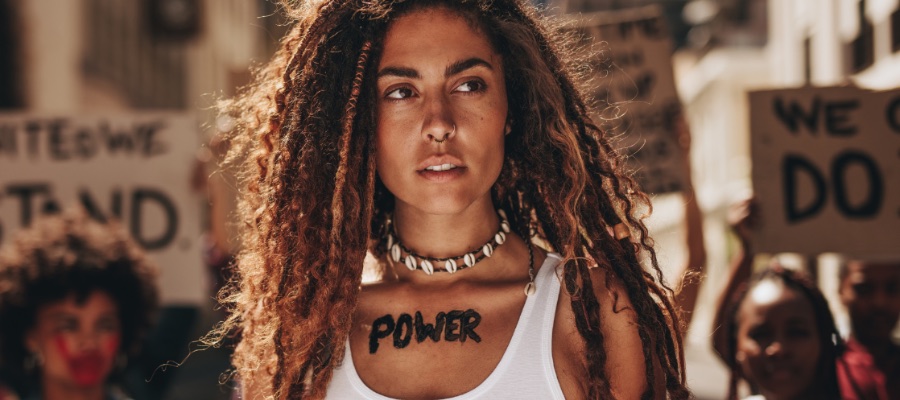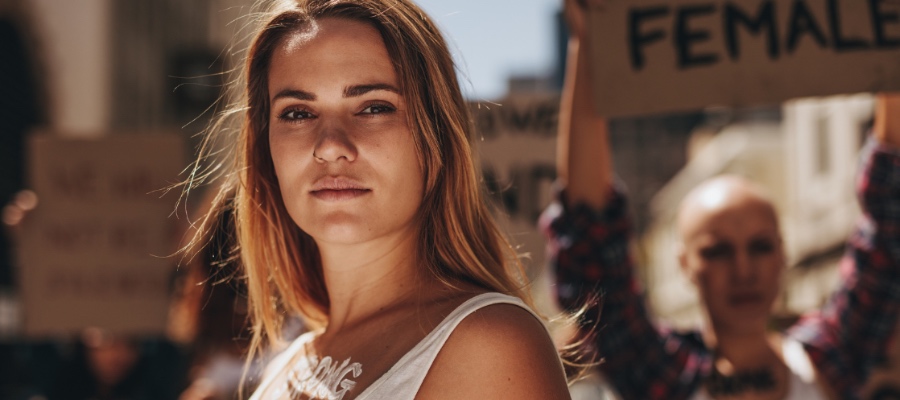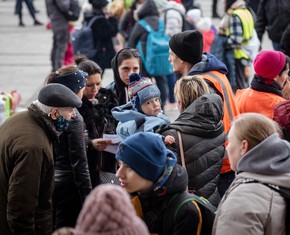The views expressed in our content reflect individual perspectives and do not represent the authoritative views of the Baha'i Faith.
Salma al-Shehab, a Saudi 33-year-old woman, was sentenced to 34 years in prison for tweeting about women’s rights in August 2022.
Over 40 people were killed by Iranian security forces for protesting the death of 22-year-old Mahsa Amini — a Kurdish woman who was fatally beaten by Iran’s morality police for wearing her hijab too loosely in September 2022.
Over 5,000 American Indian and Alaska Native women and girls were reported missing in 2016, and more than 90,000 Black women and girls were reported missing in the United States in 2020. Their names and stories have largely been ignored and forgotten.
All of these women were oppressed through the suppression of their speech, the control of their appearances, and the theft of their freedoms and lives. They had no power, no choice, and no agency.
What Agency for Women Means

According to the Abdul Latif Jameel Poverty Action Lab, women’s agency is defined as “their ability to define and act on goals, make decisions that matter to them, and participate in the economy and public life.”
This involves having the power to make choices that will influence their lives and futures.
How the Baha’i Faith Gives Women Agency

1. The Baha’i Faith Empowers a Woman’s Self-Worth
Experiments have found that women’s internal beliefs about their worth and abilities are direct indicators of agency. This power needs to be felt internally before it can be exercised outwardly.
The central figures of the Baha’i Faith empowered women by affirming their inherent value and strengths in their talks and texts. At a talk in London in 1911, Abdu’l-Baha, the authorized interpreter of the Baha’i writings and the son of Baha’u’llah, the prophet and founder of the Baha’i Faith, said:
The woman is indeed of the greater importance to the race. She has the greater burden and the greater work. Look at the vegetable and the animal worlds. The palm which carries the fruit is the tree most prized by the date grower. …For her greater strength and fierceness, the lioness is more feared by the hunter than the lion.
The woman has greater moral courage than the man; she has also special gifts which enable her to govern in moments of danger and crisis.
2. The Baha’i Faith Doesn’t Relegate Women to Traditional Gender Roles
While the Baha’i writings honor the role of mothers, they still do not support the sexist belief that a woman’s place is in the household.
When Baha’u’llah proclaimed the equality of women and men, “He made woman respected by commanding that all women be educated, that there be no difference in the education of the two sexes and that man and woman share the same rights.”
The Baha’i Faith encourages women to occupy leadership roles and enact change. The Baha’i writings say:
In this Revelation of Bahá’u’lláh, the women go neck and neck with the men. In no movement will they be left behind. Their rights with men are equal in degree.
They will enter all the administrative branches of politics. They will attain in all such a degree as will be considered the very highest station of the world of humanity and will take part in all affairs.
Rest ye assured. Do ye not look upon the present conditions; in the not far distant future the world of women will become all-refulgent and all-glorious, For His Holiness Bahá’u’lláh Hath Willed It so!
3. The Baha’i Faith Lets Women Decide Who They Will Marry
In a world where 12 million girls are forced into a marriage every year, I’m grateful that the Baha’i Faith lets women decide who and when they will marry. Abdu’l-Baha wrote:
As for the question regarding marriage under the Law of God: first thou must choose one who is pleasing to thee, and then the matter is subject to the consent of father and mother. Before thou makest thy choice, they have no right to interfere.
4. The Baha’i Faith Lets Women Decide How They Will Look
As we witnessed in the case of Mahsa Amini, women in many cultures do not have the freedom to decide how they will look. But in the Baha’i Faith, our choice of clothing is left to our discretion.
5. The Baha’i Faith Abhors Male Dominance Over Women
Emotional, physical, and sexual violence are often used to suppress a woman’s agency. According to UN Women, “Globally, an estimated 736 million women — almost one in three — have been subjected to physical and/or sexual intimate partner violence, non-partner sexual violence, or both at least once in their life.”
The central figures of the Baha’i Faith abhorred this force, violence, and dominance over women. Abdu’l-Baha said:
The world in the past has been ruled by force, and man has dominated over woman by reason of his more forceful and aggressive qualities both of body and mind.
They didn’t support the sexist and oppressive idea that women should be submissive to men and made no excuses for rape and torture. As stated in a letter written on behalf of the Universal House of Justice, the global governing body of the Baha’i Faith:
The use of force by the physically strong against the weak, as a means of imposing one’s will and fulfilling one’s desires, is a flagrant transgression of the Bahá’í Teachings.
There can be no justification for anyone compelling another, through the use of force or through the threat of violence, to do that to which the other person is not inclined.
6. The Baha’i Faith Links Women’s Empowerment to Humanity’s Success
Giving women equal rights and opportunities doesn’t just benefit women. The Baha’i writings emphasize how important this equality is for the progress and success of humanity.
At a talk for the Federation of Women’s Clubs in Chicago in 1912, Abdu’l-Baha said:
And let it be known once more that until woman and man recognize and realize equality, social and political progress here or anywhere will not be possible.
For the world of humanity consists of two parts or members: one is woman; the other is man. Until these two members are equal in strength, the oneness of humanity cannot be established, and the happiness and felicity of mankind will not be a reality.
The Baha’i writings say the day will come when “the men addressing the women, shall say: ‘Blessed are ye! Blessed are ye! Verily ye are worthy of every gift. Verily ye deserve to adorn your heads with the crown of everlasting glory, because in sciences and arts…ye shall become equal to man, and as regards tenderness of heart and the abundance of mercy and sympathy ye are superior.’”
As a woman, I’m grateful to be a member of the Baha’i Faith, because this Faith affirms my value, empowers my voice, and enhances my agency to make this world a better place.
















Comments
Sign in or create an account
Continue with Googleor